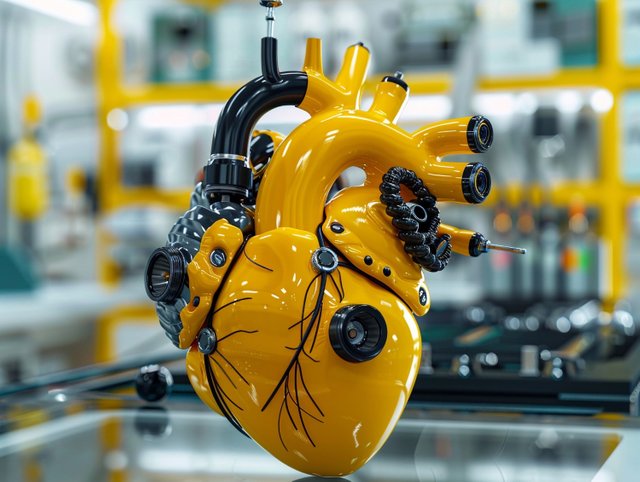Interventional Cardiology Devices Market Shows Strong Growth Amid Rising Cardiovascular Disease Cases
The interventional cardiology devices market is witnessing remarkable growth, fueled by the increasing incidence of coronary heart disease and advancements in medical technology. In 2023, the global market for these devices was valued at USD 15.61 billion, with projections estimating an increase to USD 29.32 billion by 2032. This expansion, at a CAGR of 7.3%, underscores the rising demand for cardiovascular treatments and the ongoing innovations within the sector. A deeper look into the market reveals why North America, particularly the United States, plays a pivotal role in driving these developments. Explore more insights here.
Key Industry Developments: Pioneering Technologies for Cardiovascular Health
One of the major driving forces in the interventional cardiology devices market is the rapid advancement of innovative technologies. Companies are developing new-generation stents, angioplasty balloons, and catheters to enhance procedural efficacy and patient outcomes. Recent developments include bioresorbable stents and drug-coated balloons, which aim to reduce complications associated with traditional devices.
Get More Insights: https://www.fortunebusinessinsights.com/interventional-cardiology-devices-market-107414
Top Companies in the Interventional Cardiology Devices Market
Several key players are at the forefront of the interventional cardiology devices market, investing in R&D and expanding their product portfolios. Leading companies in this market include:
Abbott Laboratories (U.S.)
Boston Scientific Corporation (U.S.)
Medtronic plc (Ireland)
Terumo Corporation (Japan)
B. Braun Melsungen AG (Germany)
Johnson & Johnson Services, Inc. (U.S.)
BIOTRONIK SE & Co. KG (Germany)
Koninklijke Philips N.V. (Netherlands)
These companies are heavily investing in R&D, focusing on partnerships and acquisitions to strengthen their positions in this rapidly growing market.
Market Drivers & Restraints
Market Drivers
The interventional cardiology devices market is driven by the rising incidence of cardiovascular diseases, primarily due to lifestyle-related risk factors such as obesity, diabetes, and hypertension. Additionally, technological advancements in stent design and drug-eluting stents, along with the increasing preference for minimally invasive procedures, contribute to market growth. The growing geriatric population worldwide is another key driver, as older individuals are at higher risk for CVDs.
Market Restraints
Despite strong growth, the market faces challenges, including the high cost of interventional procedures and devices, especially in emerging markets. Furthermore, stringent regulatory approvals and the risk of complications associated with interventional devices, such as restenosis or stent thrombosis, can hinder market growth.
Market Report Coverage: Comprehensive Analysis of Trends and Opportunities
The market report on interventional cardiology devices provides detailed insights into current trends, market segments, and future growth opportunities. It analyzes advancements in device technology, geographic market distribution, and the competitive landscape to provide a comprehensive understanding of the market dynamics.
Market Competitive Landscape: Increasing Strategic Partnerships and Product Innovations
The competitive landscape of the interventional cardiology devices market is marked by product innovation, strategic alliances, and mergers. Major players are focusing on partnerships to enhance their product offerings and reach a broader customer base. Additionally, advancements in drug-coated balloons, embolic protection devices, and imaging techniques are strengthening companies’ market positions, enabling them to stay competitive in a rapidly evolving landscape.
Market Segments: Stents Lead in Product Demand
The stents segment, particularly drug-eluting stents, dominates the interventional cardiology devices market due to their effectiveness in reducing restenosis. The ongoing development of bioresorbable stents and other advanced stent technologies is expected to drive further growth in this segment. In addition, other segments, such as angioplasty balloons and catheters, are experiencing growth due to their critical role in minimally invasive procedures.
Market Regional Insights: North America and Europe Lead in Demand
North America currently holds the largest market share in the interventional cardiology devices sector, driven by a well-established healthcare infrastructure, high healthcare spending, and the widespread prevalence of cardiovascular diseases. Europe follows closely, benefiting from similar healthcare advancements and supportive government initiatives to combat CVDs. In the Asia-Pacific region, rapid economic growth, a large patient base, and increasing healthcare investments are contributing to significant market growth.
Future Market Scope: Innovation and Personalized Cardiovascular Care
Looking forward, the interventional cardiology devices market is expected to witness continuous innovation, with emerging trends like robotic-assisted interventions and AI-driven diagnostics shaping the future of cardiovascular care. Personalized cardiology solutions are also on the horizon, promising targeted treatment options tailored to individual patient profiles. These advancements offer considerable potential for the ongoing transformation of cardiac care and are expected to fuel market growth in the coming years.
For more insights into this dynamic and rapidly evolving market, explore the comprehensive report by Fortune Business Insights on the Interventional Cardiology Devices Market.
